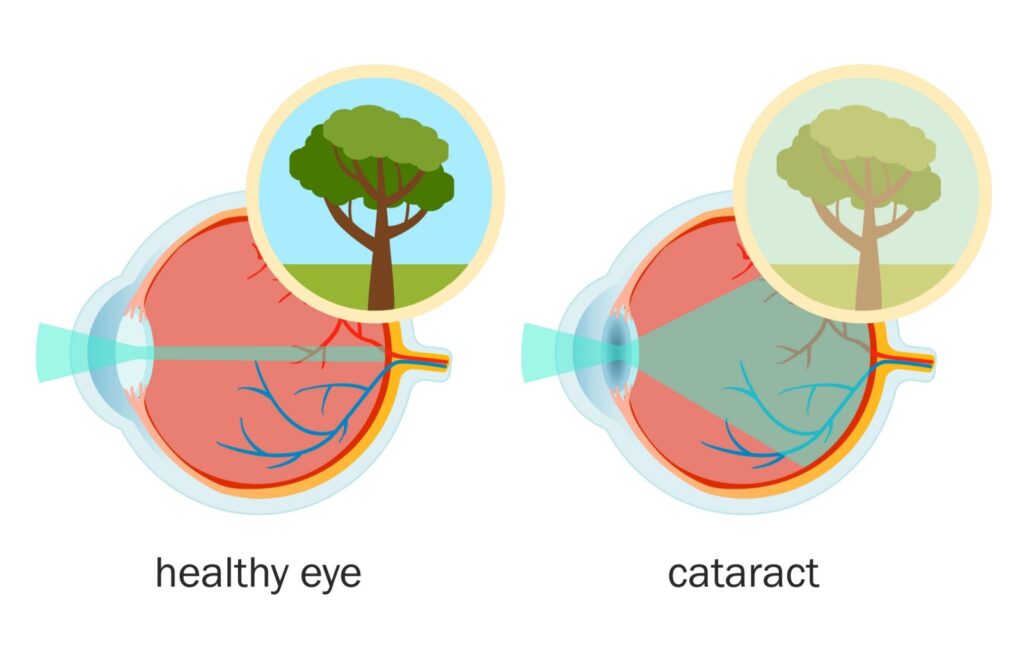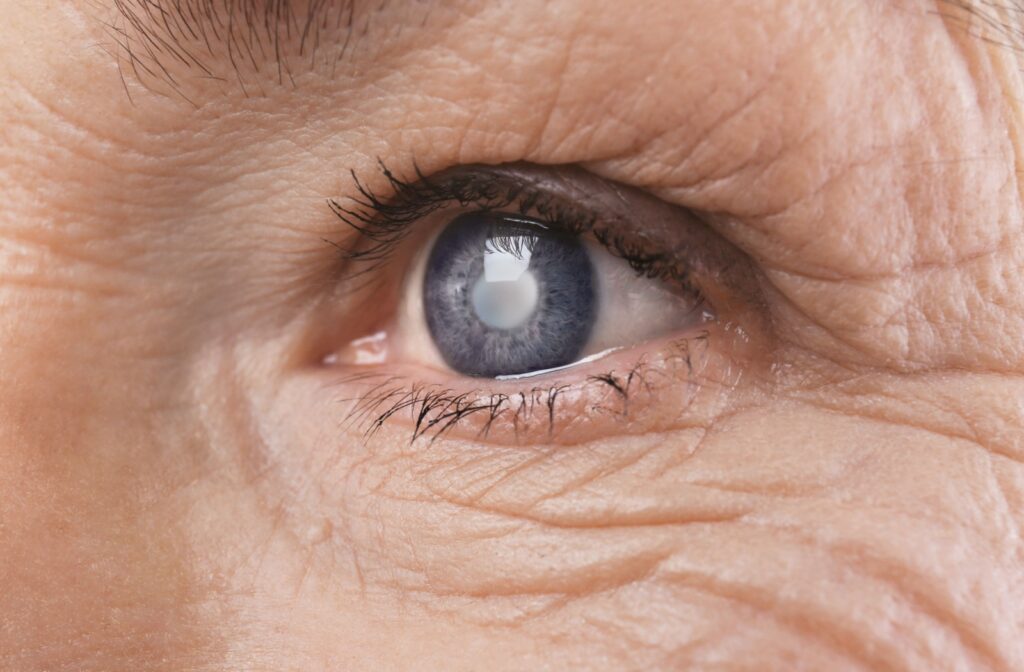Cataract surgery is a simple and effective procedure. For many people, the results bring clarity, comfort, and confidence back into daily activities. But what if, sometime after your surgery, your vision begins to blur again? Are your cataracts coming back?
The short answer is no. Once a cataract has been removed through surgery, it cannot return. In some cases, however, a condition called posterior capsular opacification (PCO) can mimic the effects of cataracts.
At Stonebridge Eyecare, we believe in taking the time to walk you through your concerns about cataracts with clarity. Let’s explore what you need to know.
What Is a Cataract?
A cataract is a cloudy area that forms on the lens of your eye. The lens sits just behind your iris and helps focus light onto your retina. When it’s healthy, the lens of your eye is clear. But over time, most often due to aging, it can become opaque or hazy, which gradually affects your ability to see clearly.
As cataracts progress, you might notice difficulty seeing in low light conditions or may have persistent fogginess in your vision. Cataracts often develop slowly, which is why regular eye exams are so important for early detection.
How Cataract Surgery Works
Cataract surgery involves removing the eye’s clouded natural lens and replacing it with a clear, artificial intraocular lens (IOL). This synthetic lens does not break down or become cloudy the same way a natural lens does. As a result, after surgery, you cannot get cataracts again.
So if cataracts can’t come back, why do some people experience cloudy vision again after surgery?
The Answer Lies in the Lens Capsule
Although cataracts (and your natural lens) are removed during surgery, your lens capsule is left intact. The lens capsule is part of your eye, and it holds the new artificial lens in place. In some cases, the back portion of the lens capsule can become cloudy months or even years after the procedure. This condition is known as posterior capsular opacification, or PCO.
PCO is sometimes referred to as a “secondary cataract,” though it’s not truly a cataract. It’s a separate condition that can cause similar symptoms, including:
- Blurred or hazy vision
- Glare or light sensitivity
- Trouble seeing clearly at night
The good news? PCO is also treatable.
Treating Posterior Capsular Opacification

If PCO develops, it can be resolved with a quick laser procedure called a posterior capsulotomy. This in-office treatment uses a specialized laser to create a small opening in the cloudy capsule, allowing light to pass through normally again. The procedure is painless, takes only a few minutes, and usually restores vision quickly.
There’s no need to repeat cataract surgery or worry about long recovery periods. Most people return to normal activities the same day.
What Causes Cataracts in the First Place?
Cataracts are most often associated with aging, but there are other contributing factors as well:
- Exposure to ultraviolet (UV) light
- Smoking
- Diabetes and other health conditions
- Long-term use of corticosteroid medications
- Eye injuries or trauma
- Family history of cataracts
While you can’t eliminate every risk, healthy lifestyle choices like wearing sunglasses, quitting smoking, and managing your overall health can all help reduce your chances of developing cataracts.
Prevention Is Still Important
Even though cataracts don’t come back after surgery, staying proactive about your vision health is still important. Regular eye exams allow us to monitor your eye health, spot potential issues early, and recommend personalized care.
At Stonebridge Eyecare, we offer imaging technologies like Optomap wide-field retinal scans, which provide a detailed view of your retina often without the need for dilating drops. These tools help us examine the health of your eyes more comfortably and efficiently.
Cataracts Can’t Come Back–But New Conditions Can Develop
If you’ve had cataract surgery and are now noticing blurred vision, you’re not alone. Cataracts themselves don’t return, but conditions like PCO can create similar problems. Fortunately, these issues are often easy to correct.
Whether you’re concerned about changes in your vision after surgery or you’re simply due for an eye exam, we’re here to help. Our team at Stonebridge Eyecare is passionate about delivering warm, thorough, and technology-supported care to every patient who walks through our doors.
Book Your Eye Exam Today
Vision changes can be unsettling, but you don’t have to figure it out on your own. If you’re experiencing blurred vision after cataract surgery, or have questions about your eye health, contact our team at Stonebridge Eyecare. We’ll take the time to understand your concerns and provide the thoughtful care you deserve.










